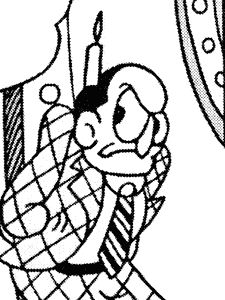Around the age of ten, I had a brief but intense love affair with historical fiction. It began with Little House in the Big Woods — required reading for all American girls of a certain age — and Roll of Thunder, Hear My Cry. I then discovered Johnny Tremain, made an unsuccessful attempt to read The Last of the Mohicans — way over my head, I’m afraid — and devoured Summer of My German Soldier.
The books that had the greatest claim on my heart, however, were Lois Lenski’s American regional novels: Strawberry Girl, Cotton in My Sack, Blue Ridge Billy, Mama Hattie’s Girl, and Shoo-Fly Girl. Looking back on these books now, I can see that they weren’t as meticulously crafted as Roll of Thunder or Johnny Tremain; Lenski’s writing was, at times, pedestrian, and her characterizations thin. What Lenski did well, however, was help young readers imagine what it was like to live in rural areas before television, telephones, and electricity were fixtures of the American home. Her books were filled with vivid descriptions of everyday activities: baking pies, picking crops, making dresses from patterns, canning vegetables, feeding chickens, washing clothes. From my sheltered point of view, Lenski’s characters led exotic, fascinating lives: who wouldn’t want to turn a bolt of calico into an actual dress, or spend the day picking berries? (The answer turns out to be me, as I flunked Home Economics.)
Though I’ve read my share of historical novels in the intervening years, I’ve seldom loved those books with the same fierce intensity as I did Strawberry Girl. Some of that disenchantment could be chalked up to adolescence: as a teenager, music superseded books as my most important form of escapism, and I read far fewer novels. And some of my disenchantment reflected my academic training: as a college student, I majored in History, taking courses that gave me the tools for exploring other places and times. Reading A Bride’s Story, however, reminded me how powerful good historical fiction can be.
 A Bride’s Story depicts everyday life in a long-ago setting — in this case, Central Asia in the nineteenth century, where the fictional Eihon clan herd sheep and make textiles. To give readers a better understanding of the period, Kaoru Mori devotes entire chapters to describing how her characters live. In chapter 6 of A Bride’s Story, for example, Mori documents “oven day,” a communal event in which women prepare and bake bread. Mori captures the scene in meticulous detail, showing us how the women shape and stamp the dough into elaborate patterns. At the same time, however, Mori uses this gathering to explore the social dynamic within the Eihon clan; though none of the women are overtly hostile to new bride Amir, her inexperience and outsider status make it all but impossible for her to join the circle.
A Bride’s Story depicts everyday life in a long-ago setting — in this case, Central Asia in the nineteenth century, where the fictional Eihon clan herd sheep and make textiles. To give readers a better understanding of the period, Kaoru Mori devotes entire chapters to describing how her characters live. In chapter 6 of A Bride’s Story, for example, Mori documents “oven day,” a communal event in which women prepare and bake bread. Mori captures the scene in meticulous detail, showing us how the women shape and stamp the dough into elaborate patterns. At the same time, however, Mori uses this gathering to explore the social dynamic within the Eihon clan; though none of the women are overtly hostile to new bride Amir, her inexperience and outsider status make it all but impossible for her to join the circle.
Other rituals are depicted with similar care. In chapter 10, for example, British anthropologist Henry Smith observes the Eihon women embroidering linen. Smith is a clever device: he serves as a natural reader surrogate, neatly anticipating the reader’s questions about the materials and cultural significance of the patterns. His questions serve another equally important purpose: they prompt Balkirsch, the clan matriarch, to identify the author of each design, explaining who she was and where she came from, in the process giving an informal history of the village.
Even in volume three, which introduces a new romantic subplot, Mori continues to document everyday activities in painstaking detail. Once again, Henry Smith serves as our eyes and ears, this time during a brief stay with two women he meets on the road to Ankara. Mori does a superb job of contrasting these women’s existence with the Eihons’: unlike the Eihons, who live in a thriving village, these women live alone on the edge of a vast plain, occupying two modest yurts with little in the way of possessions. Talas, the younger woman, must do the work of two people, grinding grain by hand, spinning wool, preparing meals, and tending a flock of sheep, following them on foot for miles each day. Though her face is youthful, her body language is not; in stark contrast to the physically robust Amir, Talas’s stooped shoulders and downcast eyes suggest the physical toll her daily labors exert.
Though Mori punctuates these moments of quiet reflection with dramatic, juicy scenes — a nighttime raid on the Eihon compound, an interrogation by Cossack soldiers, an angry confrontation between suitors — A Bride’s Story is at its best when it focuses on women’s daily lives. As this reviewer observes, Mori is not critiquing Central Asian society so much as depicting it in its full complexity. Mori never shies away from showing us how vulnerable women are in a patriarchal culture, as Talas’ situation demonstrates: without a father to arrange a new marriage for her, her late husbands’ relatives may claim her as property.
At the same time, however, Mori recognizes that women find small but meaningful ways to exercise their agency in such cultures, carving out a sphere of influence for themselves. She celebrates their wisdom and resilience, honoring their hard work by documenting it in minute detail. Perhaps that’s why I love A Bride’s Story so much; like Strawberry Girl and Little House in the Big Woods, A Bride’s Story helps me imagine what my daily life as a woman would have been like, warts and all, had I been born in another place and time. Highly recommended.
Review copy of volume three provided by Yen Press.
A BRIDE’S STORY, VOLS. 2-3 • BY KAORU MORI • YEN PRESS • RATING: OLDER TEEN (16+)
















